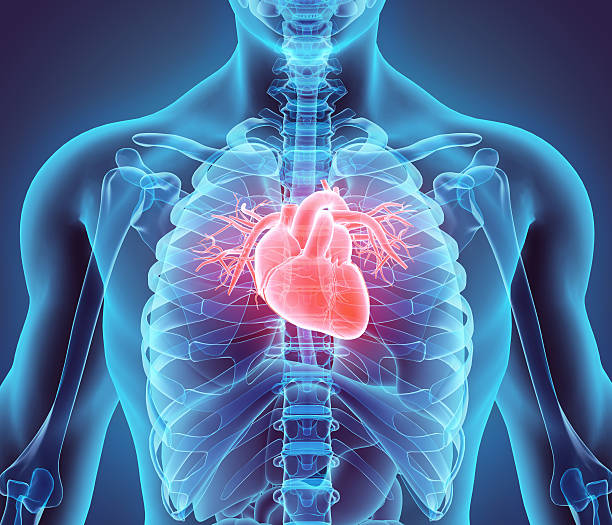A 2020 Centers for disease control and prevention report shows that 6.2 million Americans live with heart failure.
WHO reports that heart disease kills more individuals than any other disease in developed countries and comes third in developing nations.
Most of these cases are due to a sedentary or unhealthy lifestyle. And once you contract heart disease, you seem hopeless. But, here is good news.
There are ways to strengthen a weaker heart or prevent contracting heart disease by following a simple heart healthy lifestyle.
What is a weak heart?
Cardiomyopathy is a condition of the heart muscle becoming weak and unable to pump blood to the entire body as required1. It’s also referred to as congestive heart failure2.
Some cardiovascular diseases that make the heart weak
- A disease of the heart blood vessels (coronary artery disease)
- Arrhythmias (rhythm problems)
- Congenital heart problems
- Infections of the heart
- Heart valve disease
- Heart muscle disease.
How long do you have to live with a weak heart?
The lifespan of an individual with a heart condition, according to a study done in 2012, depends on age, risk group, and gender3. The study also said that the average time a person can live with cardiomyopathy is affected by other clinical risk strata underlying health conditions.
At age 50, both women and women having heart disease may live for another 18 years, whereas at age 70, both sexes can expect 8 more years of survival4.
How long does it take to strengthen your heart?
The specific time frame is unknown, for 1 in 5 heart conditions cases are silent, meaning they suffer from this disease and know it not5.
You may help strengthen your heart and blood vessels through a cardiac rehabilitation program. The heart healthy lifestyle includes physical activity, stress management plans, and healthful living6.
How can I improve my heart health quickly?
A 2019 study found that the quickest way to combat a weak heart is to do away with obesity through physical exercise and lifestyle changes.
Exercise is the best therapeutic tool for patients with cardiovascular disease. Add physical activity to a heart healthy diet, and you will quickly improve your heart health.
What are the steps to heart-healthy living?
Lose weight
A 2021 systematic review found that among obese individuals, the weight-loss cohort had a reduced risk of heart disease than their counterparts.
Consider losing weight if your body mass index (BMI) poses any indications of obesity. Work on your body weight for stronger heart health.
Regular aerobic exercise is ideal for a healthy body and reduced mortality from coronary artery diseases7.
Heart healthy diet

A heart-healthy diet consists of fruits and vegetables, a balanced diet, and polyunsaturated fats free from trans fats are good for your heart health. You should minimize the unrestricted use of salt and refined sugar, and you will be on your recovery from a weak heart8.
A 2017 study found that a heart healthy diet made primarily of Mediterranean and vegetarian diet has polyunsaturated fatty acids and phytochemicals that reduce the risk of heart attack and cardiovascular diseases.
Research done in 2018 shows that saturated fat can lead to LDL cholesterol levels, raising blood pressure and increasing the risk of heart attack and failure.
Avoid saturated fat and eliminate them from your diet. Eating healthy fats from nuts and whole grains can reduce your risk of developing heart conditions.
Endure you get blood pressure checked
High blood pressure is the highest risk factor for cardiovascular disease with the strongest evidence9.
Another cohort study shows that stage 2 -3 hypertension can significantly increase CVD risk and expand CVD mortality10. To ensure your blood pressure checked to the average level, don’t drink alcohol, quit smoking, and adopt a healthy lifestyle.
Quit alcohol consumption
According to a 2018 study, too much alcohol consumption is linked to many cardiovascular diseases.
Quitting alcohol intake is connected to a lower risk of heart attack, cardiovascular mortality, and heart disease. Do not drink alcohol to keep your heart healthy and reduce the risk of a heart attack.
Don’t smoke
A medically reviewed study poses that smoking results in a two to four times increased risk of heart disease10.
A 2019 systematic review and meta-analysis found that smoking is responsible for up to 40% of heart disease deaths and increases the risk by 60%. Therefore, quit smoking and reduce the risk of a heart attack.
A 2005 medically reviewed study shows that secondhand smoke increases the risk of coronary diseases by 30%. Don’t just quit smoking; also avoid secondhand smoke effects.
Avoid Saturated and trans fats
A randomized study in 2008 found that reducing consumption of saturated and trans fats can help reduce the risk of heart problems. Saturated trans fats are found primarily in foods like pizza, pastries, cakes, and biscuits.
What are life’s simple steps to keeping a healthy heart?
Control bad cholesterol
A medically reviewed study shows that high cholesterol and blood pressure in the body are risk factors for developing coronary artery disease.
The study also shows that low serum cholesterol may worsen prognosis in individuals having congestive heart failure (CHF)11. If you control cholesterol in your blood, you will keep your heart healthy from the risk of heart attack and stroke.
Reduce blood sugar
High glucose content in the blood is the leading course of damage to coronary blood vessels and leads to a weak heart over time12. The study shows that those with high blood glucose develop heart disease at a younger age than those without diabetes13.
Therefore it’s advisable that you discard refined sugar, added sugar to processed foods, reduce carbs in general, and settle for a heart healthy diet.
Get active
Exercises like jogging, walking, or cycling will help you burn calories, reduce body fats, and help strengthen your heart muscles making your heart healthy13.
Medically reviewed studies show that physical activity will lower blood pressure, heart rate, heart attack, and stroke while improving breathing hence improving the strength of your heart14.
Include nuts in your diet
A 2017 study shows that higher consumption of nuts is inversely proportional to cardiovascular disease and coronary heart disease.
The study results showed that, Consuming peanuts and tree nuts twice a week while taking walnuts once a week is associated with a 15-23% lower risk of heart disease and 13-19% lower risk of cardiovascular disease15.
The unsaturated fats in nuts help raise the HDL good cholesterol while lowering the LDL bad cholesterol levels in the system16. You must understand your dietary fats to keep your heart healthy.
A health study shows that including lean protein sources and healthy fats in the diet leads to a 30-50% lower risk of sudden cardiac death, myocardial infarction, and heart attack.
Get sufficient sleep
A 2021 report shows that lack of sleep can cause unhealthy weight gain, which increases the risk of heart disease.
Consequently, proper sleep can improve blood sugar control and normalize blood pressure keeping the heart-healthy from heart disease.
A peer-reviewed study in 2016 found that inadequate sleep duration is a threat to cardiovascular morbidity and mortality. Ensure sufficient sleep to keep your heart healthy and control heart attacks.
Cut your weight
Obesity is the primary cause of high blood pressure, a risk factor for coronary heart disease. To have good heart health, cut on excess weight, and maintain normal weight to avoid cardiovascular diseases.17
Cardiologists Victor G. Davila-Roman, MD, and Lisa de las Fuentes, MD, 2011 found that moderate weight loss can improve heart health and reduce heart disease risk factors.
By losing weight and maintaining a healthy weight, you will have a general healthy lifestyle.18
Keep an eye on danger signals
It’s not easy to recognize the symptoms of heart disease at an earlier age. Moreover, some doesn’t even realize the danger signals of a weakened heart until the heart attack strikes.
However, here are some of the signs that you may watch to help you detect any possibility of developing heart disease: fatigue, shortness of breath, congestion, and activity limitation19; keeping your heart healthy begins with watching over these symptoms.
Improve your diet with colors

A 2017 study found that several fruits can help regulate metabolic risk factors like dyslipidemia, diabetes, overweight, and hypertension and reduce the risk of atherosclerosis.
Another study found that eating fruits and vegetables for two months will lower blood markers for strain and clinical heart damage20. Keeping your heart healthy starts with adding heart healthy diet to your meal plans.
What are the signs of an unhealthy heart?
- Chest pain
- Shortness of breath
- Pain in the left shoulder
- Swollen feet
- Sexual health problems
- Irregular heartbeat
What exercises strengthen the heart?
Regular exercise is the best and most effective way to strengthen the heart, open a blocked artery and reduce the risk of a heart attack.
According to experts’ recommendations, you should have 150 minutes of moderate physical activity and 75 minutes of vigorous activities every week
Cycling

Cycling uses the muscles in your legs which increases your heart rate. Its been shown to reduce heart disease risk factors21. Cycling will help you develop a healthy weight for the body’s overall health.
Interval workout
According to Harvard medical school, training in which you alternate short-time high-intensity exercise with a longer active recovery period is beneficial for good heart health22. You may run or sprint for one to two minutes, then walk for 3-5 minutes.
This raising and lowering heart rate will help you burn calories, improve your blood vessels’ functions, and improve blood flow in your system.
Swimming
Of all the exercises, this is the best for heart failure. Swimming is easy on your joints and will offer a full-body workout in one session.
According to a Harvard health publishing review, swimming improves flexibility and muscle strength.23
Weight lifting

Weight training will help you build muscle and burn fats. This training is strenuous, but there are several substitutes like push-ups, pull-ups, and squats which you may do at home and get similar results.
However, recent studies show that for patients with heart disease, weight training may cause hemodynamic response.24
Walking
It seems too easy, right? But walking is very beneficial to your health25. Walking for 30 minutes a day will help you stretch limb muscles and burn out calories.26 Brix walking or walking faster will help improve your heart rate.
What are 11 steps to a healthier heart
1. Eliminate empty and refined calories from your diet
These products contain unsaturated fats, which play a vital role in the fat deposits deposited on the heart and increasing risk of diabetes and type-2 diabetes.27
Cut off from your diet the everyday use of free sugars. These are often in deserts (candy, cake, pie, and ice cream); the common sweetened cereals avoid ensuring you enrich your diet with whole grains to reduce risk factors for heart problems.28
Use unrefined cereals in your diet and improve Omega-3 fatty acids intake to lower blood fats.
2. Reduce the use of low fat dairy products
A 2021 Center for disease control and prevention report shows that high blood cholesterol, which increases the risk factor for heart disease, is high in animal products.
Eating a healthy diet of plant-based foods will reduce the risk factors for heart disease. You can use low fat dairy products as a substitute if there is no other source of protein available.29
3. Eat a light fruit supper
It’s the everyday norm that people eat very heavy super. And sometimes it’s taken very late at night. The energy that your body requires at night is only Basal Metabolic Rate (BMR) for the heart and other continuous physiological processes.30
Most of these energies are converted to fat deposits for storage, accumulating, and becoming harmful to your body.
Fruits have mainly vitamins and minerals in the right amounts that will supply energy, and the reserves are also helpful for the body’s use.31
4. Get fresh air, sunshine, pure water, and adequate rest
These are the four great doctors of nature that will help your body maintains its health. But if your health has already deteriorated, they form part of the best remedies you have at your disposal to heal your disorders and heart problem.
The heart requires a sufficient supply of oxygen to its muscles. Therefore you must breathe pure air. An oxygenated heart can’t have a cardiac arrest.32
Sunshine helps the skin synthesize Vitamin D. Deficiency of this vitamin in the body is linked to cardiovascular diseases. Several studies connect reduced exposure to sunlight with cardiovascular morbidity and mortality.
Sleep disorders are connected with several cardiometabolic disease risk.33
5. Have regular medical check-ups

In most cases, you’re likely to get help when the problem is in its early developmental stages. Regular check-ups will help you be up to date with your heart health condition.
Through the health professionals, you will have the best routine that will help you gain your health quickly.
6. Let God do the worrying
Mental health issues like chronic stress and depression are factors that lead to heart problems. Stress can reduce blood flow to the heart reducing the risk of cardiac arrest.
However, if you lay all your worries upon the Lord, all shall be well with you. He will heal all your spiritual and physical diseases.
Manage stress through faith and hope for the second coming of our Lord and Savior, Jesus Christ. A merry heart works well like a medicine (Proverbs 17:22).
7. Eliminate snacking between meals
Constant snacking will make you eat more calories, affecting your overall body weight. There is a big difference when you eat right or pick junk foods here and there.
One of the causes of obesity is junk food snacks. Reducing this habit will lower your risk of becoming overweight.
8. Have a good breakfast
A 2019 research shows that missing breakfast is significantly associated with an increased risk of cardiovascular disease mortalities.
9. Seek medical attention if you have any mental health problem
A 2015 study found that Schizophrenia-spectrum and bipolar disorders increase the prevalence of (Cardiovascular disease) CVD risk factors. It’s therefore sensible to monitor your mental health to reduce the risk of CVDs.
A 2020 report shows that individuals with mental health disorders like depression, stress, and anxiety experienced several physiological effects in their system, like increased heart rate and blood pressure.
10. Use lower trans fats and cholesterol-free oils
A 2020 study shows that Olive oil has anti-hypertensive effects due to its high antioxidant polyphenols and oleic acid content.
Use olive oil for your fresh food serving to reduce the heart disease risk factors like high blood pressure.
11. Follow the National Heart, Lung, and Blood Institute reports
There are a lot of prevention and curative reports given by the National Heart, Lung, and Blood Institute(NHLBI) on ways how you can live with heart disease and other chronic diseases which attack the respiratory system. They offer free support to the public on coronary diseases.
The risk factors for developing heart disease include.
Age
As you grow old, the heart muscles are thickened and weakened. Aging also increases the risk of damaged or narrowed arteries34. The risk of heart disease increases more after the 65years mark.
Sex
Women have a lower risk of getting heart problems than men—however, the risk of developing heart disease in women increases after menopause. The disparity in sex factors is generally because of the various physiological processes, practices, and behaviors.
Family history
A 2012 research shows a correlation between heart disease and family history. In a family in which next of kin develop heart problems at the age of 55 and 65 in men and women, respectively, there is a high risk of developing the conditions.
Smoking
Nicotine in tobacco has the effect of tightening the blood vessels. In addition, the carbon monoxide in the smoke also damages the lightning of the blood vessels—this results in arteriosclerosis35.
The risk of having a heart attack is higher in smokers than in non-smokers36. Think of quitting smoking if you will maintain a healthier heart.
Poor diet
Common foods high in dietary fats, salt, seasoned foods, and sugars contribute to higher blood pressure and heart disease. Your diet affects your blood pressure and may cause a heart attack.37
High blood pressure
Unmonitored blood pressure can cause the hardness of arteries. Individuals with high blood pressure are at higher risk of developing heart disease.38
Diabetes type 2
In most cases, when you are diagnosed with diabetes, hypertension and heart issues are underlying. If you control type-2 diabetes, you lower your risk of coronary diseases.39
Abnormal weight
Being overweight is characterized by high cholesterol in the body. In addition, the accumulation of fats in the blood increases the chances of heart disease.40 In some cases, the fats are accumulated in the heart muscles causing systolic complications.
Reducing high density lipoprotein diet and increasing the low density lipoprotein foods will lower your risk of heart problems.41
Emotional stress
Chronic stress can damage your arteries and spearhead other factors for heart disease. 42 This mental health disorder is at the root of several diseases in humans.
Ensure you focus on natural ways to manage stress levels to prevent heart disease.
Poor dental hygiene
A 2018 study found that gum disease is associated with systemic disease. A 2020 medically reviewed study poses that gum disease can cause heart infections.
When the gums are unhealthy, the bacterial load might through the bloodstream flow to the heart and cause heart problems.
A 2002 study shows that there can be some link between oral health and heart disease, although more studies should affirm these findings.
Physical Inactivity
If you engage in moderate intensity aerobic activity, you may prevent heart disease. Regular physical activity will reduce the chances of becoming obese and fat deposits on the artery, affecting your blood pressure. Maintain regular exercise for a healthier heart.
Common causes of heart problems
Two main factors in your life may cause heart issues. First, lifestyle is a great contributor to the prevalent heart diseases worldwide. Secondly, another cause of heart problems is other underlying chronic infections.
Lack of exercise
A sedentary lifestyle allows for the accumulation of fats in the body organs, including the heart. These deposits increase the stiffness of the heart muscles. Inactivity also causes weakness of the heart muscles.
During exercises, the heart works more than usual—this helps it improve pump volume in each stroke, making the heart stronger.
Studies show that physical activity is one of the best ways to prevent heart diseases like high blood pressure, obesity, type 2 diabetes, and arteriosclerosis.
Poor diet
Empty calories increase body fat and cholesterol. Fat deposits on the blood vessels will cause you various cardiovascular conditions.
Moreover, eating junk and trans fat foods affect the arteries and the heart. A lot of sodium in salt also increases blood pressure. Ensure you take fresh foods high in nutrients and low in dietary fats.
A 2021 study shows that too much salt is linked to coronary diseases. Reduce sodium intake to enjoy a healthier heart.
Obesity or overweight
Obesity and heart diseases are very closely linked. The high-fat content in the body will make the muscle of the heart turgid, reducing its functionality and increasing the risk of a heart attack. In addition, left ventricular hypertrophy ( enlargement of the left ventricle), which increases blood pressure, is linked to obesity.
Smoking
The smoke from a cigarette contains chemicals that thicken your blood. As a result, the blood forms clots in the veins and arteries. These deposits are called plaques.
They narrow the coronary artery reducing the blood flow into the heart while increasing blood pressure. In addition, by lowering the nutrients supply to the heart, there is an increase in the risk of heart attacks.
Consumption of alcohol
Drinking causes cardiomyopathy, a heart muscle disorder. High blood pressure, heart attack, and stroke are among other effects of alcohol intake. Irregularity in a heartbeat is also caused by drinking.
Lack of hygiene
Studies suggest that brushing twice a day for two minutes can lower your risk of cardiovascular disease. Earlier studies showed that heart diseases have a link to periodontal infection.43
According to the American Heart Association Journal, heart disease increases by inflammation caused by periodontal disease44
Another research done in 2016 by the Journal of Dental Research found that the risk of heart disease is increased 2.7 times by dental infections.45
Other non-lifestyle related causes include:-
- Diabetes
- Dietary supplements
- Some over-the-counter and prescription drugs.
- Vascular heart disease
- Connective tissue disorder
- Bacteria, viruses, and parasites cause heart infections like endocarditis.
Bottom Line
The above 11 easy steps can help you have a healthier heart. Follow them and add them to your health professional’s advice, and you will reverse your heart health.
The foundation of your recovery is controlling cholesterol and blood pressure in your body through the measure recommended here. Ensure a heart healthy lifestyle to keep your heart strong. Make healthy choices following the simple tips suggested in this article.


Pingback: Natural remedies for hormonal imbalance in females | GILEAD THERAPY
Pingback: What are the 13 positive lifestyle choices? | GILEAD THERAPY
Pingback: What are the 8 natural remedies? | GILEAD THERAPY
Pingback: 17 alkaline foods that reduce acidity in the body | GILEAD THERAPY